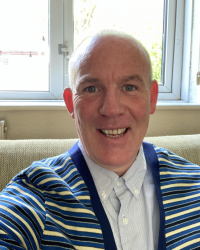Addiction aftercare: why is it necessary?
Taking personal action to intercept and interrupt addiction is a huge task. The entrenched addict needs a robust amount of energy to step into the arena of recovery.

Step number one can take years of doom to get to that point, where there is no other means to carry on the tiring life of misery. Trying a different way is the only answer. For a large majority it is entering an addiction rehab. For a few it could be a 12 step fellowship on its own. Either way, the fear of stopping needs an enormous amount of encouragement to start the journey of abstinence.
Addiction treatment is a crash course in learning to live life clean. Gaining tools to manage cravings and awareness of relapse prevention. In addition, the introduction to 12 step meetings informs the person and produces an important asset to the recovering addict's life. This also creates support mechanisms to enable a safe return to society.
Aftercare is a safety approach to the twists and turns in the road map ahead. Fundamentally it can reinforce treatment and secure long-term recovery. There is a saying, “an addict alone is in bad company.” Meaning, people do not recover alone. They need a network and also a plan to work towards. Aftercare facilitates this plan and network.
When leaving rehab after 28 days with a previous 15 years of using substances; it is not rocket science to realise there is a need to extend support for further months ahead. The progress of rehab needs to be maintained.
An aftercare plan can incorporate a new beginning with a possible future. This future can entail quite a few constructive elements. College, volunteer work, charity work, 12 step meetings/step work, safe social activities and repair work within the family are all common in a recovery journey.
Without a vision and a plan it can be like treading in murky waters. Addicts need routine and structure. Engaging in activities is the antidote to experiencing too much time on a person's hands. Preventing impulsive decisions that could lead to potential relapse. Time management is key.
With a past 15 year addiction vs a 1 year aftercare plan in place, a capacity to set the foundation for a future of freedom from addiction is achievable. This is why: Within a year the person would have managed their cravings; created safe places to socialise; and experienced some of the benefits of being clean. It’s a milestone - a life changing year. Aftercare support can facilitate this golden period.
Beyond a year, life opens up and the vulnerability of relapse is lessened. Confidence has now increased and a renewed sense of self-care is discovered. Education leading to career changes can influence and restore hope. Behavioral changes are sufficiently carried out in this time period. Maladaptive behavior is strongly linked to relapse. The more time focused on the necessity of remaining clean, the less time standing still. It’s the doing of action that counts. It's not what you say, hear or feel, it's what you do.
Having a guide in aftercare such as a therapist or experienced recovery worker can influence the correct path to tread. Going off track is not an option. The guide with experience leads the way, encouraging the person who walks the path. A sounding board to all the temptations the person may encounter. Practicing new tools that equip and tackle the possibility of relapse.
If you are currently in need of help for addiction, it takes courage to ask for help. It takes bravery to plan your aftercare. With an end result - a life of freedom and prosperity. No better time than now. Good luck and go for it!

Find a therapist dealing with Addiction
All therapists are verified professionals



